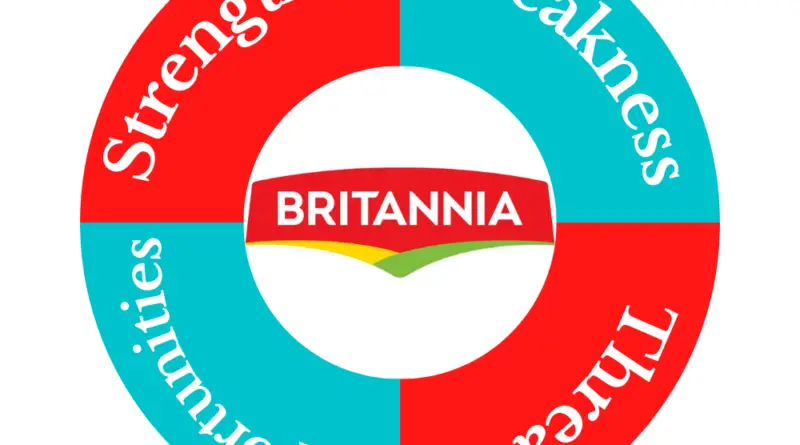Analyzing Britannia’s Strengths, Weaknesses, Opportunities, and Threats: A Comprehensive SWOT Analysis
In today’s highly competitive business landscape, it becomes crucial for companies to identify their strengths, weaknesses, opportunities, and threats (SWOT) to make informed decisions and stay ahead of the curve. In this blog post, we will conduct a comprehensive SWOT analysis of Britannia, one of India’s leading food companies. By delving into Britannia’s internal and external factors, we aim to shed light on its current position in the market and potential avenues for growth.
Strengths
1. Strong Brand Presence: Britannia enjoys a strong brand reputation in the market, built over a century of delivering high-quality products.
2. Varied Product Portfolio: The company offers a diverse range of products, including biscuits, cakes, bread, and dairy items, catering to a wide consumer base.
3. Extensive Distribution Network: Britannia has a well-established distribution network, enabling it to reach even the remotest areas of India.
4. Focus on Innovation: The company consistently introduces new and innovative products, catering to changing consumer preferences and trends.
5. Robust Manufacturing Capabilities: Britannia operates state-of-the-art manufacturing facilities, allowing it to meet market demands efficiently.
Weaknesses
1. Dependence on Biscuit Segment: Britannia’s heavy reliance on the biscuit segment exposes it to market fluctuations and intense competition.
2. Limited International Presence: While Britannia is a dominant player in the Indian market, its presence in international markets is relatively limited, hindering its global growth potential.
3. Brand Perception Challenges: Some consumers perceive Britannia as a traditional brand, potentially limiting its appeal to younger, more health-conscious demographics.
4. Vulnerability to Raw Material Price Fluctuations: The company’s profitability can be impacted by fluctuations in the prices of key ingredients like wheat, sugar, and oil.
Opportunities
1. Rising Health Consciousness: With growing awareness about health and wellness, Britannia can tap into the trend by expanding its portfolio of healthier and organic products.
2. Emerging Markets: Britannia has the opportunity to expand its presence in untapped markets, both within India and abroad, to diversify its revenue streams.
3. E-commerce Expansion: Increasing online sales and e-commerce platforms provide an avenue for Britannia to reach a wider consumer base and enhance its market penetration.
4. Product Diversification: The company can explore diversifying its product offerings by entering new segments or acquiring complementary brands to fuel growth and reduce dependence on biscuits.
Threats
1. Intense Competition: Britannia faces stiff competition from both domestic and international players, which can impact market share and pricing strategies.
2. Shifting Consumer Preferences: Changing consumer preferences towards healthier alternatives and convenience foods pose a threat to Britannia’s traditional product portfolio.
3. Regulatory Challenges: Compliance with evolving food safety regulations and labeling requirements can pose challenges for Britannia, potentially impacting operations and profitability.
4. Economic Volatility: Fluctuations in the economy and disposable income levels can affect consumer spending patterns, impacting Britannia’s sales and growth prospects.
Conclusion
Through this SWOT analysis, we have gained valuable insights into Britannia’s strengths, weaknesses, opportunities, and threats. While the company enjoys a strong brand presence and a diverse product portfolio, it faces challenges in terms of limited international presence and evolving consumer preferences. By capitalizing on emerging opportunities, such as health consciousness and e-commerce expansion, and addressing potential threats, Britannia can navigate the market dynamics and maintain its competitive edge in the food industry.




